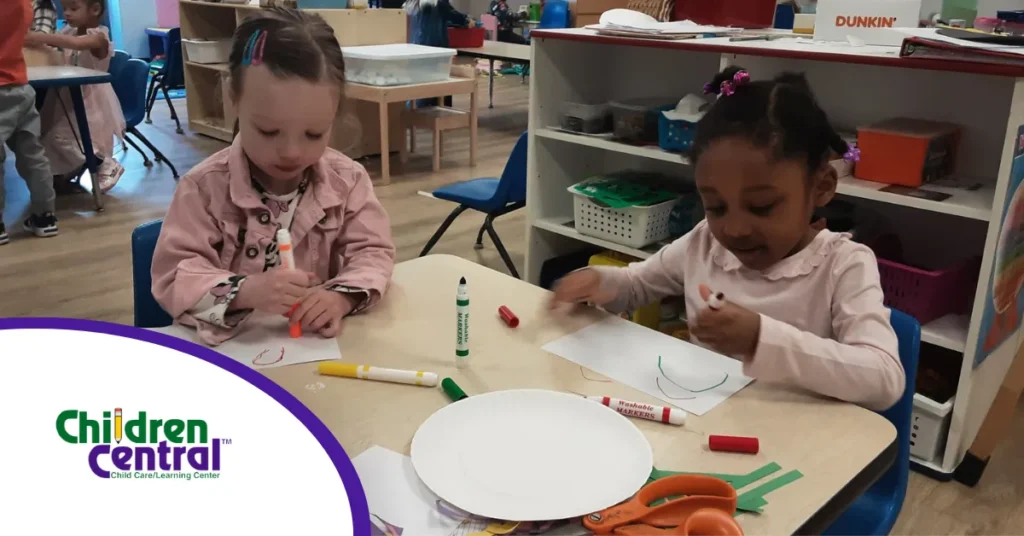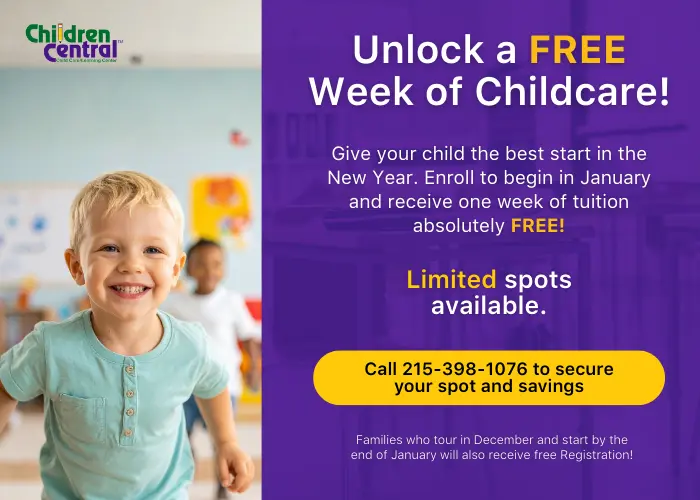Choosing the best daycare for your child is one of the most important decisions you’ll make as a parent. You want a place where your little one feels safe, nurtured, and excited to learn daily. With so many options available, it can be overwhelming to determine which daycare truly meets your family’s needs.
Every detail matters, from curriculum and teacher qualifications to safety measures and a warm, welcoming environment. A high-quality daycare does more than supervise children—it fosters growth, builds confidence, and encourages social development. Whether you’re searching for infant care or a pre-kindergarten program, knowing what to look for will help you make the best choice.
Understanding Daycare Reviews: Why They Matter

Finding the right daycare for your child is a big decision; daycare reviews can provide valuable insights to guide your choice. Parents with firsthand experience with a daycare center often share details beyond a simple tour, giving you a clearer picture of what to expect. You can make a well-informed decision about your child’s care by properly assessing reviews.
What to Look for in Daycare Reviews
Not all reviews are equally helpful, so knowing what to focus on can make your research more effective. While some reviews describe a daycare’s strengths, others may be vague or based on one-off experiences.
- Consistent Positive Themes: If multiple parents praise the same aspects, such as caring staff or engaging activities, it’s a good sign of quality.
- Comments on Safety & Cleanliness: Mentions of secure check-in systems, sanitized play areas, and overall hygiene standards reflect the daycare’s commitment to safety.
- Teacher-Child Interactions: Reviews highlighting warm, patient, and responsive caregivers indicate a nurturing environment.
- Parent Communication & Updates: A daycare that frequently updates parents on their child’s day fosters trust and transparency.
- Structured Learning & Play: Mentions of a well-balanced curriculum, social development activities, and age-appropriate learning materials suggest a strong educational foundation.
When reading reviews, pay attention to patterns rather than isolated complaints. A single negative review might not be a dealbreaker, but it’s worth considering if multiple parents express the same concerns.
Where to Find Reliable Reviews
Parents have several resources when researching daycare reviews, and checking multiple platforms ensures a well-rounded perspective. Some sources offer firsthand experiences, while others provide professional assessments.
- Google & Yelp: These platforms provide star ratings, detailed reviews, and sometimes photos from parents.
- State Licensing Websites: Many states have online databases that include inspection reports and compliance records.
- Social Media & Parent Groups: Local Facebook and online forums often feature discussions and personal recommendations.
- Word of Mouth: Asking friends, neighbors, or coworkers about their daycare experiences can offer trusted insights.
- The Daycare’s Website: Some centers feature testimonials, which can be helpful compared to independent reviews.
Exploring multiple sources gives you a clearer picture of a daycare’s reputation. If a center has mostly positive feedback but a few concerns, it’s worth asking the director about them.
Red Flags to Watch Out For
While many daycare reviews highlight positive experiences, some may reveal warning signs that shouldn’t be ignored. A few negative comments are normal, but consistent complaints across multiple reviews can indicate a deeper issue.
- High Staff Turnover: Frequent caregiver changes can disrupt children’s routines and affect the quality of care.
- Lack of Communication: Parents should feel informed about their child’s day, so frequent complaints about unresponsive staff may be concerning.
- Cleanliness Concerns: A daycare should maintain a sanitary environment, so the repeated mention of dirty play areas or unkempt facilities is a red flag.
- Safety Issues: Reviews that mention poor supervision, security lapses, or frequent accidents should be taken seriously.
- Overcrowding & Ratios: A daycare should have enough staff to provide individualized attention, so consistently mentioning overcrowded classrooms may signal a problem.
If you notice recurring negative feedback, consider discussing these concerns with the daycare staff before making a final decision. Transparency and willingness to address issues are signs of a reputable daycare.
Key Factors to Evaluate in Childcare Centers

Finding the right childcare center is more than convenience—it’s about ensuring your child is in a safe, nurturing, and stimulating environment. With so many options available, knowing what to look for when evaluating a daycare is essential. From licensing and teacher qualifications to curriculum and daily routines, every aspect plays a role in your child’s development.
Accreditation & Licensing: Meeting Quality Standards
A high-quality childcare center should meet or exceed state licensing requirements. Accreditation from reputable organizations ensures that a daycare adheres to best practices in safety, education, and staff training.
- State Licensing Compliance: A reputable daycare should be licensed and meet all state-mandated regulations for health and safety.
- Keystone STARS or National Accreditation: Programs that participate in state quality rating systems or national organizations like NAEYC often offer a higher standard of care.
- Transparent Policies & Inspections: Centers should provide access to their licensing records, safety policies, and recent inspection reports.
- Staff Background Checks & Certifications: A trustworthy daycare conducts thorough background checks and ensures all caregivers have necessary certifications, such as CPR and first aid.
- Clear Health & Safety Procedures: These should clearly outline emergency preparedness plans, illness policies, and sanitation practices.
Before enrolling your child, ask about the center’s licensing status and request to see documentation. A daycare that is open about its policies and accreditation values transparency and quality care.
Teacher Qualifications & Experience: The Heart of the Center
The caregivers at a childcare center play a significant role in your child’s early development. Highly trained and experienced teachers develop a nurturing environment that encourages learning, socialization, and emotional growth.
- Early Childhood Education Training: Teachers should have relevant degrees, certifications, or training in early childhood education.
- Low Teacher-to-Child Ratios: Smaller classes provide more individualized attention and a better learning experience.
- Ongoing Professional Development: The best centers invest in continuous training so that their staff stay updated on early childhood best practices.
- Positive & Engaging Interactions: Teachers should be warm, patient, and genuinely engaged with the children in their care.
- Staff Longevity & Stability: A low staff turnover rate is a good sign that the daycare provides a supportive work environment that benefits the children.
During your visit, see how teachers interact with the children. A caring and dedicated staff is a crucial factors in creating a positive daycare experience.
Classroom Environment & Curriculum: Supporting Growth & Development
A well-structured daycare should balance learning, play, and socialization. The classroom setup and curriculum should encourage curiosity, creativity, and foundational skill development.
- Age-Appropriate Learning Activities: The curriculum should be tailored to each age group, from infants to pre-kindergarten.
- Daily Routine & Structure: A predictable schedule with time for play, learning, meals, and rest helps children feel secure.
- Interactive & Hands-On Learning: Children should have access to books, art supplies, building blocks, and other educational materials.
- Social & Emotional Development: A strong program encourages teamwork, communication, and emotional regulation skills.
- Outdoor Play & Physical Activity: Regular outdoor time promotes physical health and motor skill development.
A high-quality childcare center doesn’t just watch over children—it fosters their growth in a safe, engaging, and well-organized setting. Observing a classroom in action can help determine whether it aligns with your expectations.
Understanding Daycare Tuition & Budgeting for Quality Care
Finding the right daycare involves balancing quality care with affordability. While every parent wants the best for their child, daycare tuition can vary widely based on location, program offerings, and staff qualifications. Understanding what goes into daycare pricing can help you make an informed decision without compromising the care and education your child deserves.
What Influences Daycare Tuition Costs?
Daycare tuition isn’t just a flat rate—it reflects the quality, resources, and level of care provided. Several factors can impact the cost, and knowing what contributes to pricing can help you compare options effectively.
- Location & Cost of Living: Centers in high-demand areas or cities typically have higher tuition rates due to increased operational costs.
- Teacher Qualifications & Ratios: Programs with highly trained staff and smaller class sizes tend to charge more due to better teacher-to-child ratios.
- Curriculum & Learning Materials: A daycare that offers structured learning, STEM activities, and hands-on enrichment programs may have higher fees.
- Operating Hours & Flexibility: Extended care options or flexible scheduling can increase tuition costs.
- Accreditation & Quality Ratings: Centers with national accreditation or high state quality ratings often have higher tuition due to enhanced standards and resources.
When comparing daycares, consider what is included in the tuition—some programs cover meals, enrichment activities, and supplies, while others charge additional fees.
Comparing Pricing & Payment Options
Since tuition varies by daycare, comparing costs and exploring different payment structures is helpful. Many centers offer payment plans or discounts to help families manage expenses.
- Weekly vs. Monthly Payments: Some daycares charge weekly, while others offer a discounted rate for monthly payments.
- Sibling Discounts: Many childcare centers provide reduced tuition for families enrolling multiple children.
- Part-Time vs. Full-Time Care: If you don’t need full-time daycare, part-time programs offer a more budget-friendly option.
- Additional Fees: Ask about registration fees, supply fees, or late pickup charges to understand the total cost.
- Employer or Military Discounts: Some workplaces offer childcare benefits or reimbursement programs to help offset costs.
Discussing tuition openly with daycare providers can help you find an option that meets your budget while providing the level of care you need.
Financial Assistance & Subsidies for Daycare
For families concerned about affordability, there are financial aid programs and subsidies that can help cover daycare tuition. Many states and organizations offer support for working parents who meet eligibility requirements.
- State & Federal Assistance Programs: Programs like Child Care Assistance (CCAP) provide subsidies based on income and employment status.
- Tax Credits & Deductions: Parents may qualify for the Child and Dependent Care Tax Credit to cut down the financial burden of daycare costs.
- Employer-Sponsored Benefits: Some companies offer dependent care flexible spending accounts (FSAs) to implement pre-tax dollars for childcare expenses.
- Nonprofit & Community Grants: Local organizations sometimes provide childcare scholarships or grants for families in need.
- Sliding Scale Tuition: Some daycare centers adjust tuition based on household income for more accessible childcare.
Exploring these options can make quality childcare more affordable while ensuring your child receives the nurturing environment they need to thrive.
Conclusion
Choosing the best daycare is a journey that requires careful consideration, but with the appropriate approach, you can find a place where your child will learn, grow, and thrive. By reading daycare reviews, evaluating childcare centers, and understanding daycare tuition, you’ll be well-equipped to make a confident and informed decision. The right daycare isn’t just about convenience—it’s about creating a foundation for learning and happiness.
Ready to find the ideal daycare for your little one? Contact us today at (215) 398-1076 or visit our page to schedule a tour: https://childrencentral.net/contact-children-central/. We can’t wait to welcome you and your child into the Children Central family!




